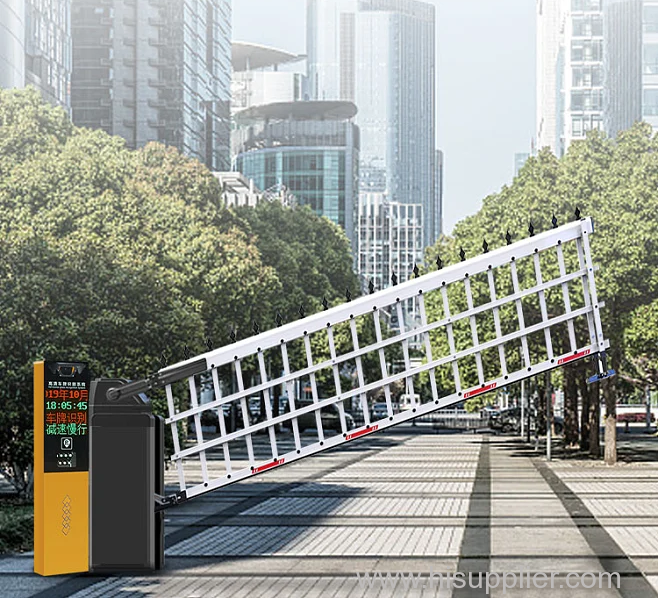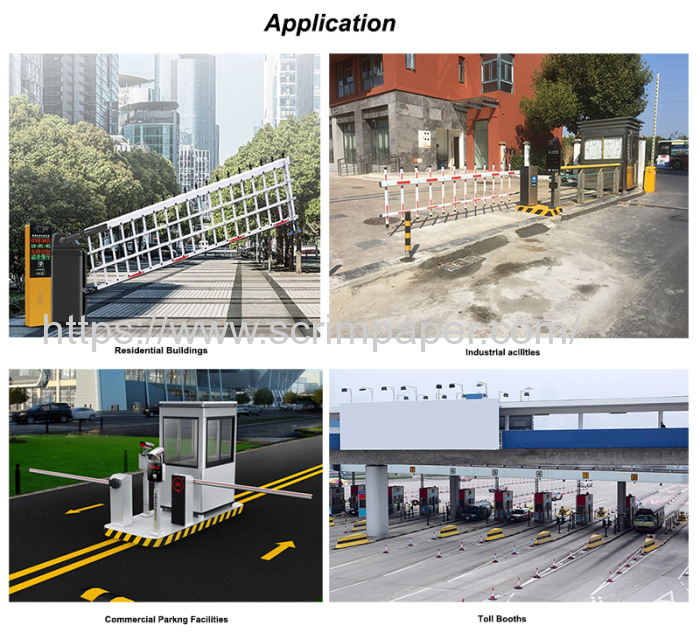
|
Shenzhen Timesourcing Intelligent and Technology Co.,Ltd
|
Gold Index: 75155
You are here: home > Parking Barrier Gate > Barrier Gate Systems: Enhancing Security and Access Control for Modern Spaces
Product (261)
- Parking Barrier (139)
-
Pedestrian Gate
(111)
- Speed gates (29)
- Flap barrier gate (26)
- Swing barrier gate (26)
- Tripod turnstile (30)
- face recognition (11)
Parking Barrier Gate (7)
News (6)
Credit Report
Products Index
Parking Barrier Gate
Barrier Gate Systems: Enhancing Security and Access Control for Modern Spaces

Introduction
Barrier gate systems are cutting-edge solutions designed to regulate vehicle access, enhance security, and streamline traffic flow in various settings. From commercial premises and residential communities to parking lots and toll booths, these intelligent barriers play a pivotal role in managing vehicular movements efficiently. In this article, we will explore the functionalities, benefits, and applications of barrier gate systems, highlighting their significance in the modern world and their positive impact on security and access control.
- Understanding Barrier Gate Systems
Barrier gate systems, also known as boom barriers or parking gates, are automated devices installed at entry and exit points to control vehicular access. These barriers consist of a sturdy arm (the boom) that blocks or allows vehicles to pass, depending on the authorization status. Barrier gates can be integrated with various access control technologies such as RFID cards, barcode readers, license plate recognition systems, and remote controls for seamless operation.
- Advantages of Barrier Gate Systems
2.1. Enhanced Security: Barrier gates act as a formidable physical barrier, preventing unauthorized vehicles from entering restricted areas. By incorporating advanced access control technologies, such as biometric authentication or smart cards, businesses and communities can bolster security measures and prevent potential security breaches.
2.2. Traffic Flow Management: In areas with heavy vehicular movements, like parking lots or toll booths, barrier gate systems ensure organized and smooth traffic flow. Automated operations and quick response times minimize congestion and improve overall operational efficiency.
2.3. Restricted Access Control: Barrier gate systems allow administrators to define specific access permissions for different users. This feature is particularly useful for gated communities, corporate facilities, and sensitive installations, ensuring only authorized personnel can enter designated areas.
2.4. 24/7 Unattended Operations: Many modern barrier gate systems are designed for autonomous and unattended operations. They can be equipped with sensors to detect vehicles, automatic opening/closing mechanisms, and integrated alarms to handle exceptional situations efficiently.
- Applications of Barrier Gate Systems
3.1. Parking Management: In commercial establishments, residential communities, and public parking areas, barrier gate systems are instrumental in managing parking access and payments, optimizing space utilization, and ensuring a seamless parking experience for visitors.
3.2. Toll Booths and Highways: On toll roads and highways, barrier gate systems facilitate electronic toll collection, reducing traffic congestion and enhancing the overall efficiency of the transportation system.
3.3. Industrial Facilities: Industrial complexes, factories, and warehouses utilize barrier gate systems to control access, monitor vehicle entry and exit, and secure valuable assets and inventory.
3.4. Event Venues: During concerts, exhibitions, and sporting events, barrier gate systems maintain crowd control and facilitate secure vehicle management for attendees.

Conclusion
Barrier gate systems represent a crucial innovation in access control and security management. Their versatility, efficiency, and integration capabilities make them indispensable solutions in a wide range of applications. By deploying barrier gate systems, businesses and communities can enjoy enhanced security, streamlined traffic flow, and improved access control. As technology continues to evolve, we can expect even more sophisticated barrier gate systems to emerge, catering to the ever-changing demands of modern spaces. Embracing these intelligent solutions will undoubtedly lead to safer, more efficient, and secure environments for everyone.
Pre Page:
The Smart Solution for Efficient...
Next Page:
Streamlining Access Control with...





